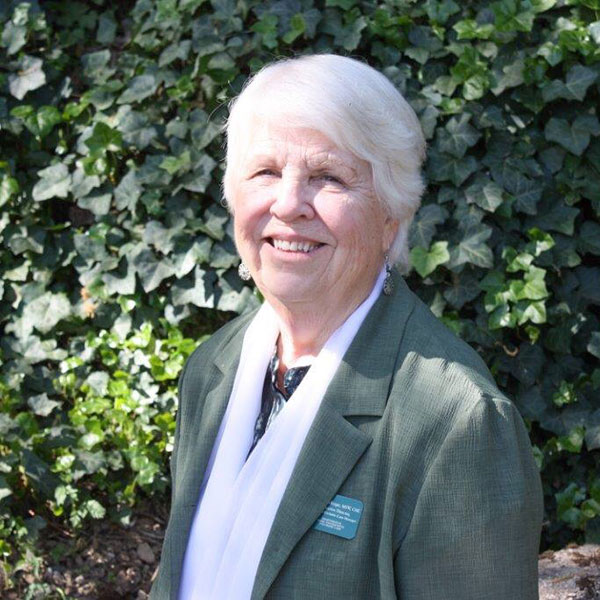Oh No, Not Again – Power Out – Who Does it Affect and How
by Carol S. Heape, MSW, CMC
November 12, 2019

As I write this, it hasn’t rained appreciably for months. The fires of last week around California are being contained and there is no wind. Most of all we have power back on. I would suspect that many of us are holding our breath that the dominant utility company will not decide to withhold the power once more but until the rains come in seriously, it’s a real possibility of this reoccurring. It could be the “new normal” as the weather forecasters are saying these days. The multiple outages were talked about, promoted and threatened hours and even days in advance. In reality however, how prepared and ready were we really? I’d like to tell you about how older adults, many years past 75-95 and beyond were affected by the power shutoffs in the foothills of California.
Mr. B. lives alone in the rural part of the Sierra foothills in a house that he and his wife moved into almost 40 years ago. He is 10 miles out of town and likes it that way. He has neighbors but not too close that he sees when he drives down to the mail box. He lives alone now at 83 with his adult children living hundreds of miles away. When the power went out, his refrigerator stopped too. He admits that cooking is not his strong suit but the TV dinners work fine when they stay frozen. You also need a microwave or oven to cook them in. Without them, he struggled with having enough to eat. He was on a well that was reliable and gave him good water. Without electricity the pump wouldn’t go on. Other than several gallons of bottled water to drink, he had no water either. He endured a total of 14 days without power on three different occasions in October.
Ms. M. lives in a mobile home that without power for 4+ days was very cold. With nights in some of the foothill communities going down into the 40s and lower, her mobile never did warm up during the day. Again, this woman in her early 80s had no ability to keep food cold or keep herself warm. She ventured out one day deciding to go out for lunch. However, all the restaurants near her mobile home park were also without power. She didn’t want to drive too far and be short on gas so she went into the local grocery store that had brought in a large generator for a portion of the store. She was able to warm up and buy something from the deli. She asks if this will happen again and dreads the thought.
These two individuals are typical of individuals “aging in place” successfully under normal circumstances. In northern California some of the highest percentages of older adults are in the Sierra foothills may over the age of 85. These individuals have chosen to live in a semi or rural setting for what it has to offer. Many of these individuals live a structured but independent life style.
They live in their own homes, in one of the numerous mobile home parks, in retirement apartments, in Assisted Living housing or in nursing homes. How do you think these individuals many 80+ years old with health issues, mobility issues and memory issues took this decision to take away the ability to prepare their meals, eat good food, take a hot shower, stay warm and in many cases lose the ability to know what was going on in the world with no TV or radio. How do the administrators and staff from retirement housing, assisted living facilities or nursing home staff deal with all the health, safety and necessities of daily living for scores of older adults when there is no power, no heat, no lights and perhaps no ability to cook meals?
I’ve heard stories of creativity, innovation and “making do.” I’ve also heard stories of desperation, depression, hunger and helplessness from many. Knowing how difficult it was for those of us that are reasonably healthy and active, think about those elders who work hard at their level of independence based on increasing years and declining health.
Older retired adults live on fixed incomes with Social Security being the mainstay of their monthly income. For many there is a very small or nonexistent cushion of what they have left each month after paying space rent, groceries, gas, insurance and the other monthly bills that we all have to pay. When the power went out, that bit of extra money may have gone for batteries, candles, an extra sweatshirt and ready to eat food. When the local pharmacy is closed due to no power and necessary prescriptions need to be refilled, do you go without or drive to another farther away and hope they can fill your prescriptions?
The lucky ones (if you can call it that) were the people who had propane in their apartments, mobile homes or houses that could be used for cooking and heating hot water for washing and dishes. Others had a generator that provided electricity for the refrigerator, freezer and a couple of lights. The danger arose though finding your way across and around the extension cords that snaked across dim or dark rooms and not trip and fall. Some had wood stoves but were afraid to build a fire in the woodstove fearing embers might ignite a wild land fire. Others had hot water for showers but no ability to cook on an electric stove. For those who live in an all electric residence, the options were slim to none.
In years past it wasn’t unusual to have a bad snowstorm sometime in January when schools were closed and the power would go out. It was a novelty to put the milk out in the snow bank to keep it cool and fix soup on the woodstove or Coleman stove brought up from the basement. For some reason the novelty wasn’t there this time.
We’re not “out of the woods yet” as someone once said. But if indeed, this is an occurrence that is a tactic to help with the danger of fire, could we expect that:
- We’ll get honest information from the electric company i.e., If you say you’re going to turn the power off at a specific time, stand by the statement. Don’t turn it off 2 hours earlier.
- If the reasoning is a “high wind event”, be SURE that there is wind in the areas to justify losing power. Remember many of us have weather stations too.
- Utilize the “red alert” national system that many residents are signed up for instead of PG&E’s own system of notification. If there’s an emergency, how many registration sites must a person have?
- If people and businesses are without power, credit those days back that we had NO power.
- Do not patronize your customers, talk down to us or assume you know more than we do. You may but your job is to educate the consumers while assuring their safety and ability to survive.
- Work hard on a short term fix and a long term solution that guarantees electricity to your rate payers while ensuring fiscal health for your company shareholders. You have a lot of work to do.
Carol S. Heape, MSW, CMC is Founder/CEO of Elder Options, Inc. assisting older adults in the Sacramento  Region “to live life fully” since 1988. As an older adult living in El Dorado County, she experienced multiple power shut offs during October 2019.
Region “to live life fully” since 1988. As an older adult living in El Dorado County, she experienced multiple power shut offs during October 2019.

